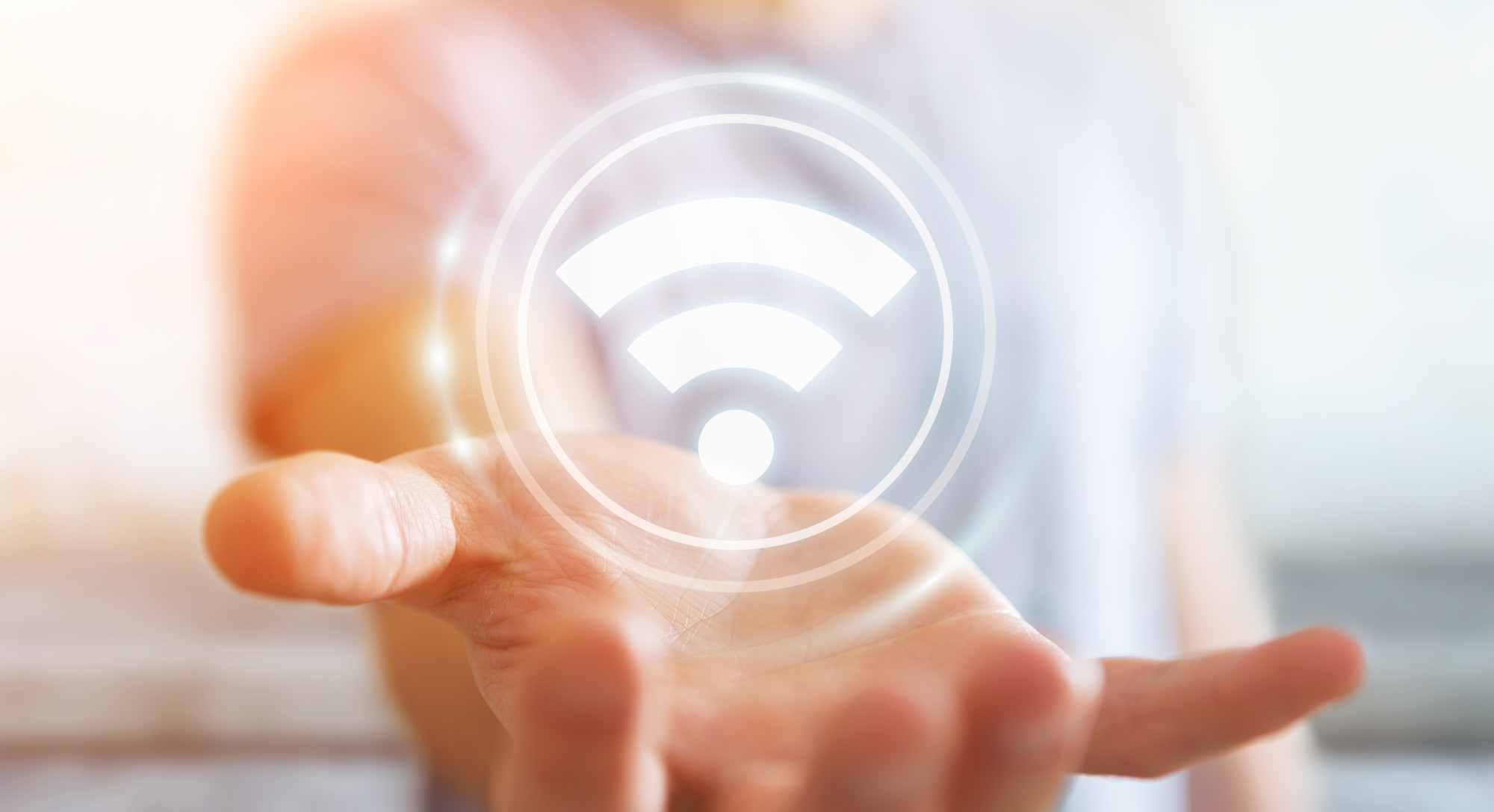As the Coronavirus Spreads, More People Are Preparing to Work From Home
As we face the threat of the Coronavirus, more people are preparing to work from home. Ensure you're partnered with the right internet service providers.

Choosing the Right Internet Service Providers When Working From Home
At the time of writing, there are almost 200,000 cases of coronavirus in the world. It's more important now than ever to do your part in slowing the spread of the disease, which means you may have to take your work home with you.
Since much of the world is slowly transitioning to this anyway, it shouldn't be too difficult for you to do. But if you're new to this, you may be a bit lost in how to get set up properly.
If you're going to be working from home, then you're probably wondering about internet service providers available in your area that can give you quick and reliable service. In this article, we'll discuss the setup you need to work from home during these difficult times and provide you with some resources so you can make the best decision possible for your situation.
What You Need to Work From Home
Of course, you need an internet connection to work from home. But what many people fail to realize is you can't just climb into bed and work on your laptop.
Not only is this bad for your posture, but it's not very helpful to work in a space that's usually reserved for relaxing. Experts say you need to keep your bedroom somewhere reserved for sleeping and other leisure activities, as this will help with your sleep quality. Plus, your body is used to being laidback while in the bedroom, so you find yourself being not as productive as you can be.
To ensure you crank out just as much work as you do in the office, here are a few things you need.
An Ergonomic Desk
Remember how we said you shouldn't work slumped in your bed? You need an ergonomic desk that's designated as your workstation.
This includes an office chair that enables you to sit up straight at a proper distance from your screen. If you're using a PC instead of a laptop, you'll have to consider how comfortable your keyboard and mouse are as well. Think about connecting your laptop to a monitor and using a mouse and keyboard for better productivity.
A Stable Internet Connection
It isn't enough to just have an internet connection. The worst ones will cut in and out, which may interrupt important processes, such as saving your work in the cloud or uploading something to your work portal. Or if you're on a video call with a coworker or client, this may waste time, as you'll need to constantly call each other again when the connection inevitably drops.
When you have to constantly deal with these things, you can quickly fall behind in work. Not only does it cause a delay in things, but it can also cause you to feel frustrated, which can affect your motivation.
A Quick Internet Connection
In addition to having a stable internet connection, it also has to be quick. A slow connection can have you sitting around, waiting for processes to load and finish before you can move onto the next task.
A study found that people lose a whole working week every year as a direct result of slow internet. If you want to be as productive as possible, then you need to look at your internet service as an investment. Yes, you'll pay more for a stable and quick connection, but when you can work unhindered, that can be more than worth the price you pay.
Types of Internet Services Available
There are several types of internet services you can use, although some may not necessarily be available in your area. Of course, these will all come with their own pros and cons, so you need to weigh them up before settling on the best option.
Below, we'll discuss each type of internet service you can use, as well as their advantages and disadvantages.
DSL
"DSL" stands for "digital subscriber line." This type of internet connection uses existing phone lines to get you on the internet, which means copper wires. While it was cutting-edge technology back in the 1990s when it first came out, DSL is now considered outdated and slow, especially when compared to other choices.
However, where DSL shines is its accessibility. Because the majority of areas (if not all) are already set up with telephone lines, there's not much additional work to get DSL. It's also very affordable, so if you're on a budget, this may be a good choice.
Do note that the connection speed will depend on where exactly you're located. So while someone in a city over might get lightning-fast speeds, that may not necessarily be the case for you. This will depend on how far you're located from a telephone exchange.
Also, if you're located somewhere where you get lots of storms, the quality of your internet connection may be compromised during those times. You may even completely lose your connection.
Cable
Cable internet also uses copper wires, but through coaxial cables. It's a step higher than DSL, so if you want something a bit quicker, then you might want to choose this option instead. However, it does have a smaller coverage area than DSL, so there's a small chance you may not be able to get cable in your area.
Like DSL, cable is pretty affordable. Plus, most buildings that already have cable TV capabilities are already set up for this type of internet. So if you're already getting cable TV, it's very simple to add cable internet on top.
One downside is if you have neighbors who also use cable, there can be some congestion at times. For instance, if you're all home after work and are watching Netflix, you might notice it takes longer to load each section and the quality may be compromised. So if you have lots of neighbors who you suspect may jump on the internet at the same time you're on, it may not be the best choice for you.
Fiber
As the name suggests, you get an internet connection through fiber optics. This is one of the best options around, if not the best.
Why? Because instead of using copper lines, it uses glass fibers to transmit data. As a result, fiber internet sends signals much quicker than copper wires do, so you get truly stunning speeds.
But for many people, they may experience a bottleneck. This is because your internet service provider (ISP) may connect the glass fibers to a traditional coaxial cable.
Also, the main disadvantage of getting fiber internet is the cost. It's the most expensive option available, and for many customers, they only see a slight improvement to internet speeds when compared to, say, cable internet.
So unless you have lots of disposable income and do bandwidth-heavy tasks online, then you should consider the other options first.
Satellite
Unlike the other types on this list, satellite internet doesn't require you to be hooked up to cables or wires. This is because your home will get the internet signal from a satellite that bounces the connection from space to a satellite installed on your home.
This type of internet comes with a caveat; you may experience slower speeds. Plus, your connection may be interrupted if there's beam obstruction. And in some places, satellite internet can be more costly.
However, if you're located in a rural area, you may not have the luxury of choosing other options, such as DSL, cable, or fiber. In that case, satellite may be the only option. Otherwise, you may be stuck using your smartphone as a 4G hotspot (which isn't very great).
Things to Consider When You're Looking at Internet Service
Obviously, you'll be using the internet to work from home, so that's the most important bit. If your work is very data-intensive, then spending more money for more bandwidth is ideal. Otherwise, getting basic speeds should be enough to handle things like checking emails and writing out documents on Google Suite.
But what else will you be using the internet for? And more specifically, what will your family be using it for?
For instance, think about if you're on your own and just need to check emails and write on Google Docs. Now compare that with a household of 4 where the kids love playing video games and streaming videos all day long.
Also, think about whether you want connected or wireless internet. While going wireless is nice and allows for more freedom, it does also mean the quality of your connection is compromised a bit. Connecting through an ethernet can feel restricting, but it will provide your computer or laptop with solid and quick internet.
Some Great Internet Service Providers
Now you know what the common types of internet are. Next, you should take a look at the popular internet service providers and compare them to figure out which one's best for you.
CenturyLink
CenturyLink is an ISP that's been around since 1930. Obviously, they haven't been providing internet services since then, but they're an experienced telecommunications company.
They offer DSL and fiber, so if you're in an area where you don't have fiber access, you can still fall back on DSL. CenturyLink also has very affordable prices, so for most households, it can be a solid choice.
If you're not a fan of signing up for contracts, then you're in luck with CenturyLink. They have no contracts, which means you're free to switch ISPs whenever you want if you wish. Plus, they have a Price for Life guarantee, which locks in the prices you pay.
Viasat
Viasat is an ISP that offers satellite internet. While they've only just launched their satellite in 2017, they quick rose to the top of big-name ISPs. They're truly a lifesaver if you live somewhere rural, as you're probably not able to get options like DSL, cable, or fiber.
They offer some of the quickest speeds for satellite internet, and you can only expect that to only improve. They're planning on launching 3 more satellites in 2021, which will make them the world's first global ISP.
There are 6 sets of plans available and you must sign a 2-year contract. But if you want to break it early, you only have to pay $15 per each month left on the contract. You can also sign a no-contract plan, but then you have to pay an upfront equipment cost of $300 instead of leasing it.
Spectrum
Spectrum (or Charter Spectrum) first appeared on the scene in 2014, although Charter Communications was first founded in 1999. They provide just cable internet, so you don't have choices with this company.
They also only have 1 package, so it's either that or nothing. This can be useful for people who don't like to spend time comparing packages. On the other hand, it can be a disadvantage since you're stuck with just one plan.
However, this plan offers up to 100 Mbps, which means it should be more than enough for a household of 4.
HughesNet
HughesNet is part of Hughes Network System, which has been around since 1971. They've been offering their satellite internet services ever since 1996 and was first known as DirecPC.
If you want to get a simple internet plan that'll be cost-efficient, then HughesNet is it. They only offer 1 download speed of 25 Mbps and don't have mid-contract price adjustments. You can get anywhere from 10 Gb to 50 GB, but the most cost-efficient plans are 10 and 20 GB.
If you want anything quicker than that, you might want to consider Viasat instead. Do keep in mind that because they're both satellite services, they won't work well with VPN servers.
AT&T
If you want to go with a well-known telecommunications company, then try AT&T. They were first founded in 1983 and are one of the biggest brands people know.
Because they're such a big company, AT&T is able to offer different choices, such as DSL, cable, and fiber. They also have great coverage all throughout the country.
Upgrade Your Internet Today
Now you know what it takes to have an optimal work from home setup, as well as which types of internet are best for what you do. When you combine this with what you now know about the top internet providers, this can assist you in making a choice for your upgrade.
Always remember to shop around for options; taking some extra time to compare each service can make a world of difference. It can save you the time and trouble you need to spend to rectify the situation.
Do you want to switch internet service providers so you can get the best service possible as you work from home? Then take a look at our list now. You can search by zip code!




